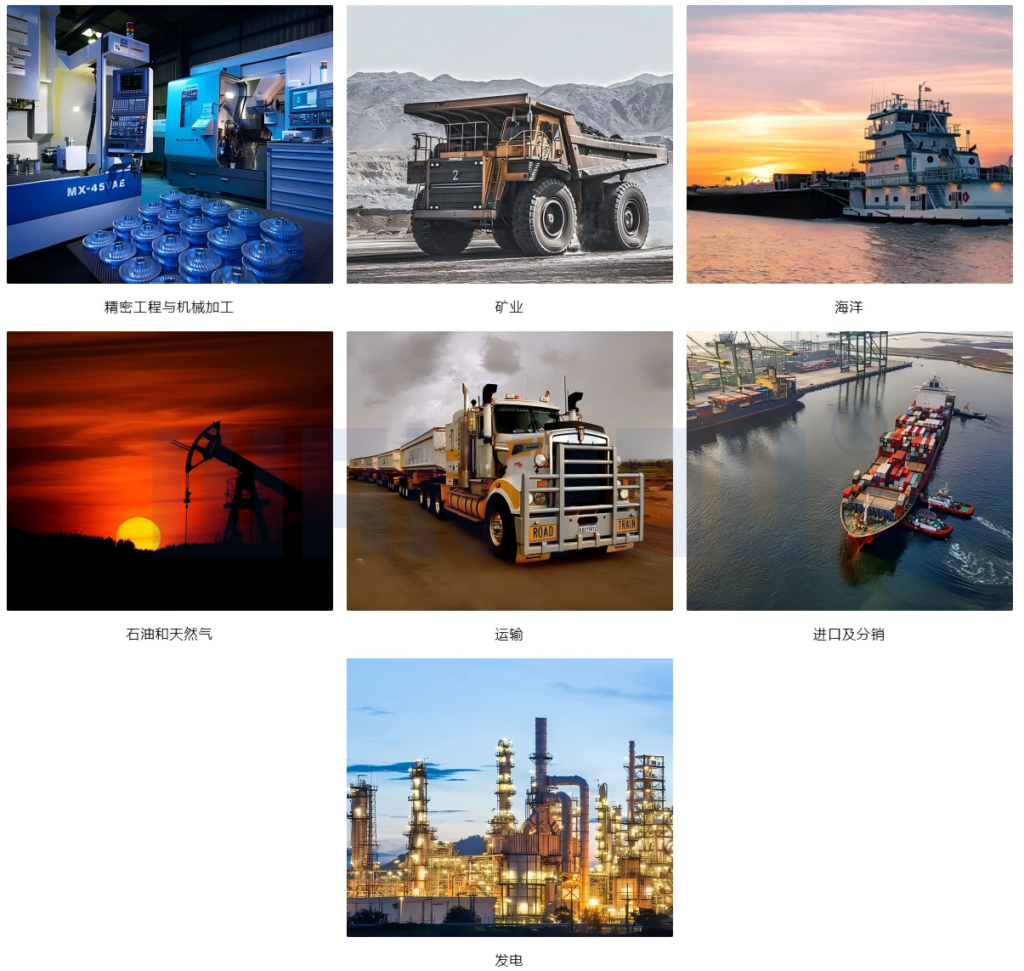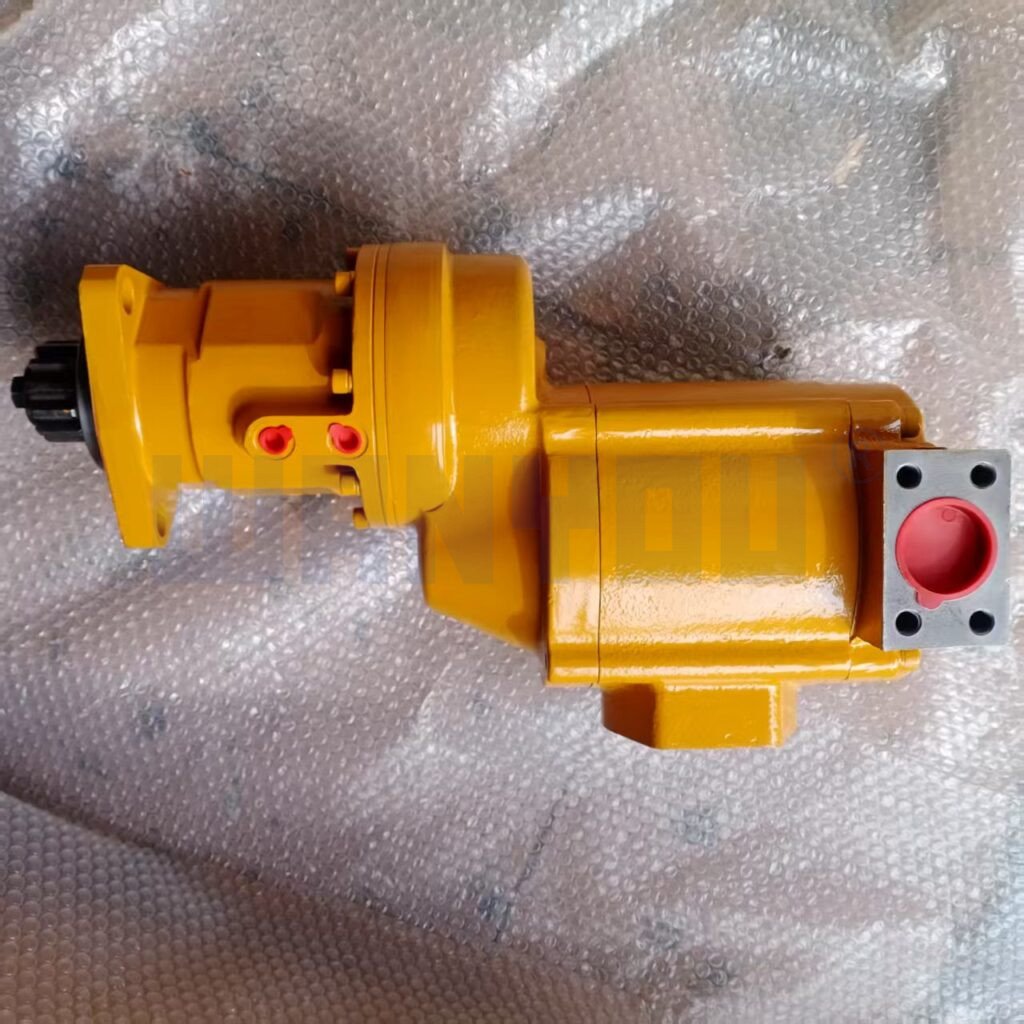Pneumatic starters: the source of efficient, reliable power

In the modern industrial field, the starter is an indispensable key component in many mechanical equipment. Whether it is a large generator set, a compressor, or a marine engine, the performance of the starter has a direct impact on the operational efficiency and reliability of the equipment. Among the many types of starters available, pneumatic air starters can replace any factory-installed starter engine while providing a variety of beneficial benefits. Pneumatic air starters take up much less space than traditional electric starters because they are powered by air. Pneumatic air starters are also considered safer in hazardous environments because they do not generate electrical sparks as electric starters sometimes do, eliminating the risk of igniting flammable materials that may be present.
Air starters have much more torque than an electric starter of the same size, so even small air starters can start very large engines and turbines. In addition, electric starters and their wiring can become overheated if it takes longer than expected to start the engine, whereas air starters can run as long as there is an air supply. Turbo starters offer more torque and tend to be simpler, making them ideal for turbine engines. Turbo air starters are widely used in large turbofan-engined commercial and military airplanes; as well as ships, trains, and heavy construction equipment.
the working principle of pneumatic starter
Pneumatic starter, as the name suggests, is a kind of starter device that utilizes compressed air as a power source. Its core principle is to do work through the expansion of compressed air to drive the mechanical components of the starter to run, so as to drive the start of the main equipment. Specifically, the pneumatic starter is usually composed of the following key components:
- Air source system: to provide high-pressure compressed air, usually supplied by the air compressor or storage tank.
- Control valve: used to regulate the flow and pressure of compressed air, to ensure that the starting process is carried out smoothly.
- Air motor: converts the energy of compressed air into mechanical energy to drive the output shaft of the starter.
- Transmission mechanism: Transmit the power of the air motor to the flywheel or crankshaft of the main equipment to complete the starting process.
- When the starting signal is issued, the control valve opens and compressed air enters the pneumatic motor, pushing the piston or blade inside the motor to move, thus driving the output shaft to rotate. Through the transmission mechanism, the power from the output shaft is transferred to the main equipment, accelerating it from a standstill state to normal operating speed.
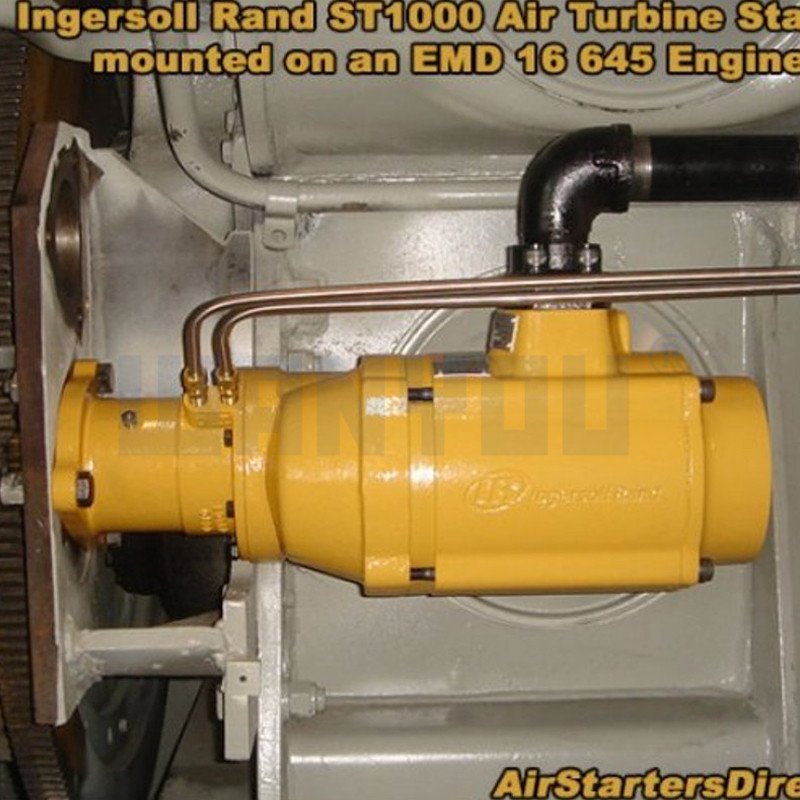
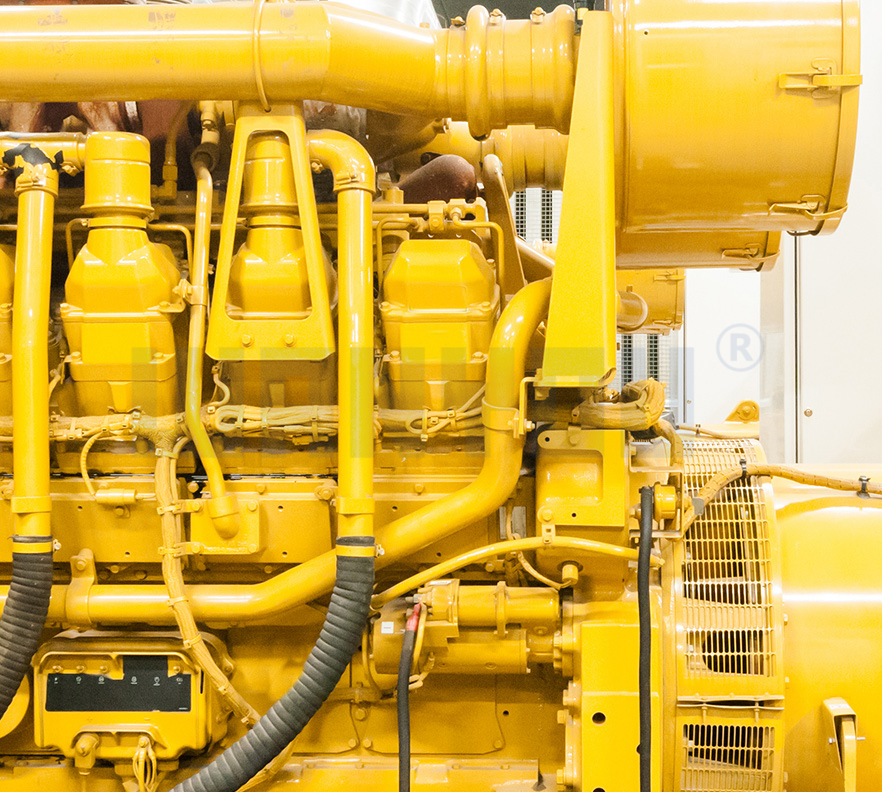
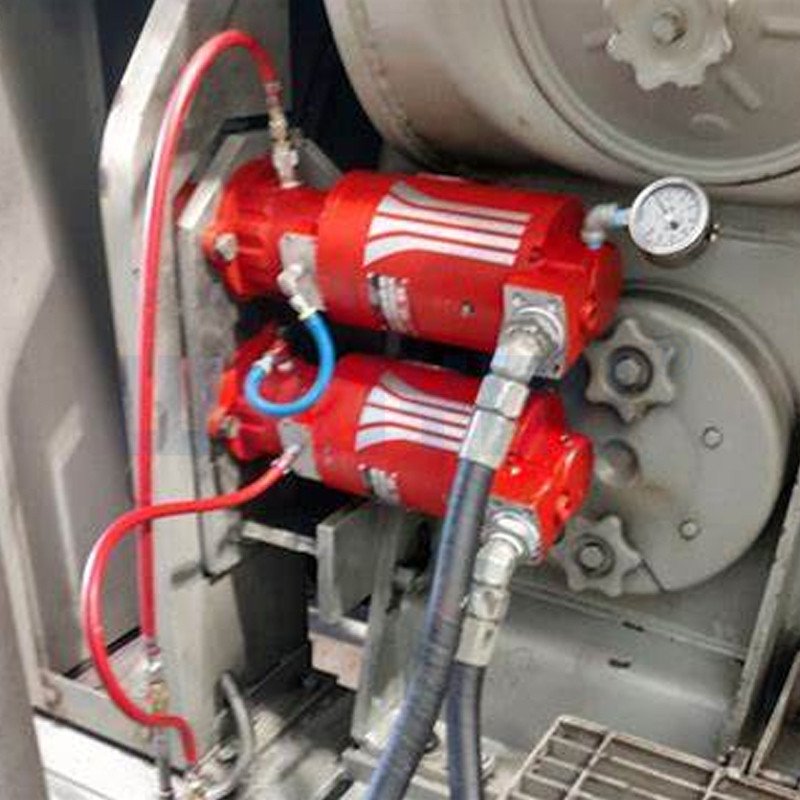
Second, the application of pneumatic starter scene
Due to its unique working principle and performance advantages, pneumatic starter is widely used in many industrial fields, especially in the high load, high reliability requirements of the scene is particularly outstanding. The following are a few typical application scenarios:
- Generator sets: In large generator sets, the reliability of the starter is directly related to the stability of the power system. Pneumatic starters can provide strong starting torque to ensure that the generator set reaches the rated speed in a short period of time, so that it can be put into operation quickly.
- Ship engines: Ship engines usually need to be started under harsh environmental conditions, and pneumatic starters have become the ideal choice for ship engine starting due to their corrosion-resistant and vibration-resistant characteristics.
- Compressors and pumping stations: in the oil, gas and other industries, compressors and pumping stations often require a large initial torque to start, pneumatic starters can meet this demand, to ensure that the equipment starts smoothly.
- Mining and heavy machinery: mining equipment and the working environment is usually more severe, pneumatic starter can work stably in high dust, high humidity conditions, to ensure that the equipment starts reliably.
Third, the advantages of pneumatic starter
Compared with electric starters or hydraulic starters, pneumatic starters have the following significant advantages:
- High starting torque: pneumatic starter can provide very high starting torque, especially suitable for starting large, high load equipment. Its starting process is smooth, can effectively avoid equipment damage due to start-up shock.
- Strong environmental adaptability: the pneumatic starter has low requirements for the working environment, and can operate stably under the harsh conditions of high temperature, low temperature, high humidity, high dust, etc. This makes it suitable for use in mines, ships, and other industries. This makes it perform well in special environments such as mines and ships.
- High safety: Since the pneumatic starter takes compressed air as the power source, there is no electric spark or high temperature, so it has higher safety in flammable and explosive environments.
- Low maintenance cost: the structure of pneumatic starter is relatively simple, less wear and tear of components, lower maintenance costs. In addition, compressed air as a power source will not require frequent replacement or charging like batteries, further reducing the cost of use.
- Fast response: the pneumatic starter start-up process is rapid, can provide sufficient power in a short period of time to ensure that the equipment is quickly started and put into operation.
Fourth, the future development trend of pneumatic starter
With the development of industrial automation and intelligence, pneumatic starters are also evolving. The future pneumatic starter will pay more attention to energy saving and environmental protection and intelligent control. For example, through the introduction of intelligent control systems, pneumatic starters can automatically adjust the flow and pressure of compressed air according to the actual load of the equipment, thus further improving energy efficiency. In addition, the application of new materials and new technologies will further enhance the durability and reliability of pneumatic starters.
V. Conclusion
As an efficient and reliable power device, the pneumatic starter plays an important role in modern industry. Its unique working principle and significant advantages make it stand out in high load and demanding application scenarios. With the continuous progress of technology, pneumatic starters will continue to provide more efficient and reliable starting solutions for industrial equipment, helping the rapid development of various industries.
Whether it is a generator set, ship engines, or mining equipment, pneumatic starters have become the “source of power” in many industrial fields with its excellent performance and reliability. In the future, with the continuous progress of industrial technology, pneumatic starters will usher in a broader application prospects.

